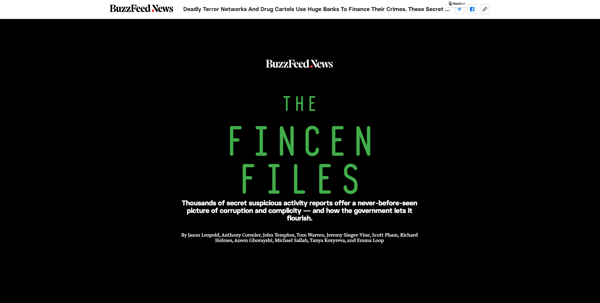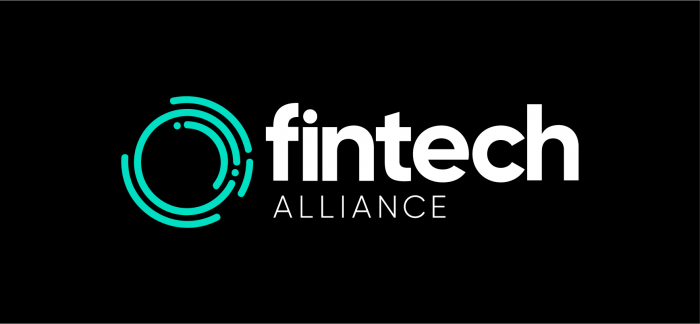Welcome to the Frictionless Finance Report, our monthly look at everything new in the world of Open Banking, FinTech, and consumer experience. If you’d like to receive this in your inbox, fill in the form at the bottom of the page. This month we examine the leaked documents from the US Financial Crimes Enforcement Network and how banks can capitalise on bank data.
Open Banking
As the UK Government imposes new stringent requirements on the British populous amongst warnings that we have another six months to endure, it is clear that a return to the old ways of working will not be taking place with any great haste. Indeed, the tone from the Government is at odds with the jovial chord it struck in July when we were offered a Monday to Wednesday discount to save our favourite pubs and restaurants, and were being gently chided for not returning to the office.

With more severe impositions in place and making for a potentially bleak winter, the acceleration that we have witnessed and written about has a chance to not only continue its aggrandisement, but to bed itself in - “the new normal”, you might, almost, say.
With that in mind, this month in the Frictionless Finance Report, we bring you news of some positive survey data which highlights that finance houses are indeed taking Open banking very seriously, as well as some top tips for those in the financial sector who remain curious about just how bank data and Open Banking might be of benefit to them.
New research byDutch aggregation service Yolt has shown that interest in implementing Open Banking services has not been dented by the Coronavirus pandemic. Nearly half of all respondents (48%) said that there plans to use Open Banking services remained unaffected. Of the 1,000 banking professionals surveyed, 40% said that they did not use any type of Open Banking platforms. Of that group, 80% said they had never considered Open Banking. The survey further showed that there remains significant misconceptions about Open Banking and its place in the financial journey.
This is backed up by a further survey, reported in Business Insider and DBC Media, which has shown that a 25% increase in those that feel “positive” about Open Banking, with the number rising from 48% last year to 73% this year. 50% of those surveyed expect it will take less than 4 years for their investments to be repaid.

It would appear that financial institutions are now beginning to understand the potential for Open Banking, and, though sometimes in a limited way, how it could apply within their business. So what should they do?
There has been a clutch of articles this month that have sought to answer this very question.
Finextrahave approached this from the perspective of how much budget should be allocated to Open Banking. The changing face of banking means that they should be considering changing from being a custodian of money to a custodian of data. This requires a very different mindset, and also technologies, which need to be bought and paid for. Potentially, banks should also consider Open Banking as a tactic to ward off the threat posed by the big tech firms. They write:
Therefore, if banks have the ambition to become a trusted cornerstone of society once more, now is the time to secure sufficient funding to invest in Open Banking data and API capabilities. By thinking ahead, banks can address not only current, but also upcoming data legislation.
Perhaps, it is not, in fact, the costs that we should be focused on, but the potential pay out once the benefits are reaped. That is the argument put forward in the Financial Brand. They note that there are myriad reasons for using Open Banking, from opening up new revenue streams, to building new products based on data and bringing on board those not yet served by traditional banking methods. They argue that a clear strategy with defined objectives will be of paramount importance to any bank undertaking an Open Banking project.
TransferWise’s Lars Trunin has outlined some of the worst that he has seen from banks in the last few years and how to overcome these issues. In AltFi, he comments on such issues as customer journeys that are not designed for Open Banking, reticence from banks to drop old methods and embrace the new, claiming that account aggregation is the end goal for Open Banking, and integrations that don’t work reliably, or at all.

As always in these pages, we’re keen to highlight some of the latest developments and thinking that shows the new use-cases that Open Banking can be applied to.
One that has jumped out at us this month, is how Open Banking could be used to overcome the network fees that are routinely passed on in card fees. The Fintech Times has illustrated that over £500m was paid to card handlers in one month of 2020 alone. By using Open Banking, these charges could have been circumvented.
Matt Cockayne, CCO of Yapily said:
Open Banking payments come at a fraction of the cost of traditional card fees which represents significant savings for businesses. Not only can these savings be passed directly onto their customers, or reinvested into the business, open banking offers a better user experience which we’ve seen to help increase online conversion rates.
BEST OF THE REST IN OPEN BANKING:
- Could Open Banking be used to counter information bias, and therefore everyday issues such as sexism? Very possibly write FinTech Zoom.
- Will the adoption of Open Banking also force firms into the cloud? That's the question posed by Bank Innovation.
- The Scotsman newspaper published its annual FinTech supplement with many well-timed pieces, including this one, on why Edinburgh is the perfect place for Open Banking to thrive.
Open Banking Abroad
We have a whistle-stop tour of the globe this month as a result of the pandemic, and other considerations mean that progress in implementing Open Banking has been seriously curtailed in all but a few jurisdictions. Here are the main headlines:
AMERICA
In the United States, a further 39 members were added to the Financial Data Exchange (FDX), joining DirectID and 139 others. The FDX has been seen as one of the key industry body’s in financial data.
Don Cardinal, Managing Director of the Financial Data Exchange, said:
The movement towards open banking or open finance is happening around the world with a myriad of different approaches. And yet, the need for a common, secure and interoperable API standard for user-permissioned data sharing is ubiquitous.
 EUROPE
EUROPE
The Second Service Payment Directive has been slammed by Andrej Zujev, the Founder of Forbis Group. In an interview, he stated:
In developing all of our systems to work with the open banking rules, we’ve run into the fact that it’s a lot of noise about nothing. It’s poorly prepared and incomplete. It’s absurd. I’m convinced the EU’s open banking project has zero future if key changes are not made.
SWITZERLAND
The Swiss Bankers Association (SBA) has decided to follow the route of the United States, not Europe and the UK, by creating a system of Open Banking that is led by the industry, not mandated. Banks will be free to choose for themselves who they work with and whether they will open up APIs to third parties.
According toFinTech News, the SBA has written that:
According to the trade group, banks must ensure that open banking fits in with their overall strategy, brand positioning and offering strategy. They must have a clear positioning and a precise idea of which offerings they want to combine with what specific added value.
Based on that strategic positioning, banks must then decide what role they will play in implementation. This role can be either as a supplier, where they supply products and services for distribution to third parties; an orchestrator, where they act as a third-party bringing manufacturers and distributors together; an aggregator, where they obtain products and services from third-parties and distributes them via their own channels; or if they want to have an integrated role, where they supply products and services for distribution via their own channels.
ABU DHABI
The Department of Government Support in Abu Dhabi has launched an open data platform to enable public and private sectors to exchange and share open data with users, start-ups, and academic institutions, as per Zawya.
Finance
The major breaking story has come in the last few days, as Buzzfeed News received 2,500 leaked documents, that it then shared with International Consortium of Investigative Journalists.

The leaked documents are from the US Financial Crimes Enforcement Network (FinCEN) and focus on SuspiciousActivity Reports (SARs). These are documents that must be filled in and submitted to FinCEN whenever a request is made to a bank that they think may involve money laundering.
Critically, while the banks are obligated to fill in a SAR for each suspicious transaction, the filling in of the SAR does not preclude them from fulfilling the request of their customer. Therefore, by analysing each of the SARs, Buzzfeed News and their counterparts can begin to establish how much potentially dirty money has been moved across the globe, by whom, and who for.
The leaking of these documents raises very serious questions for the banks. While stringent requirements are in place to stop individuals and companies from laundering money, banks appear to be able to bypass these requirements, simply by filling out a SAR.
The leak of these SARs follows the 2016 leak of the so called “Panama Papers” and the 2017 “Paradise Papers”, both of which brought huge scrutiny on to the financial system.
Banks are under enormous pressure to conform to Anti-Money Laundering (AML) and Know Your Customer (KYC) rules, and already in 2020, huge fines have been brought about for those that have been found to not follow the strict letter of the rule. Analysis by UK RegTech firm Encompass Corp, last year showed that 58 AML fines were handed out in 2019, totalling over $8 billion.
Bank stocks took a pummelling when the news broke on Monday, with Deutsche Bank falling 8%, and HSBC to a near thirty-year low.
The main links and headlines to this growing story:
- The story was broken by Buzzfeed News, and they have this overview piece
- Buzzfeed have a second article examining Deutsche Bank’s role
- Standard Chartered is also implicated by Buzzfeed
- The BBCand Guardianhave good overviews
- The Guardian has a further article highlighting how it has impacted the share price of some of the banks mentioned
- The BBC highlights Barclays involvement in a “ponzi scheme”revealed within the documents
- The Organised Crime & Corruption Reporting Project (OCCRP) and Investigative Consortium of Investigative Journalists (ICIJ) have their own takes on it
- The Middle East Monitor reports Deutsche Bank may have facilitated funds to ISIS in Iraq
- Business Insider has further coverage of tumbling bank stock prices
- Finextrareport that the leaking of the documents cast new doubts on banks' ability to stop money laundering
 BEST OF THE REST IN FINANCE:
BEST OF THE REST IN FINANCE:
We have detailed already how the Coronavirus pandemic is driving the shift to digital, and this month there have been further validations of this. Articles across a number of different publications all highlight how the shift to digital is enhancing our experiences in the financial world – and what more needs to be done
- Bobsguidenote that while there has been a definite shift over the last year, more needs to be done to include older people within digital offerings.
- In Forbes, the question of whether more digital offerings could support those that are unbanked or underbanked is asked.
- One of the side effects of moving to digital is less access to cash – a subject we have covered extensively. This is covered by the Finance Innovation Lab and FinTech Futures.
- Customers state that they would prefer a fully automated onboarding process, write Verdict.
FinTech
As we kick off our top news in FinTech we’re staying close to home, and a swathe of coverage on the Fintech market in Scotland. At the end of August, the Scottish Technology Ecosystem Review Report was published with recommendations on supporting and enhancing the Scottish tech sector. With 34 separate recommendations, the review – which was commissioned by the Scottish Government in May – has examined how Scotland’s tech sector can help the Scottish economy recover from the Coronavirus pandemic. Coverage of the report can be found in the Herald, Holyrood Magazine, Digit, and responses from the Scottish Government hereand here.
The progress made by the FinTech community in Scotland over the last five yearshas also been extrapolated on by the outgoing Chief of Scottish Financial Enterprise, Graeme Jones. He writes:
As an industry, we recognise our vital economic role and our societal responsibilities in supporting our customers, colleagues and communities. Financial services in its many forms, including fintechs, are supporting millions of Scottish households and businessesduring this difficult time and I think innovation has really helped with that.
The effect of the pandemic has rightly put a huge amount of emphasis on whether FinTech and digital companies can lead the way in creating new job opportunities. With the furlough scheme scheduled to come to an end next month, the necessity for the UK economy to create thousands, potentially millions, of new jobs, is great.
Tony McLaughlin of Citi Bank has issued a rallying cry for FinTech’s the length and breadth of the country – not just London – to lead the way out of the economic slump. He told Finextra:
If you think about fintech as a way of working, companies have got access to global markets because their software is scalable across the world. Naturally fintech is a type of business where software is created collaboratively, where people work in new styles, where not everyone has to be in same office or location.
The potential of the Scottish tech sector to create these positions has been highlighted by Crowdfund Insider. DirectID has also looked to create as many opportunities as we can. The company is currently recruiting for a number of full and part-time roles, and recently announced that it had applied to the UK Government’s Kickstart scheme, with the ambition of taking on 30 young people for 6 months or longer.
BEST OF THE REST IN FINTECH:
- The UK Government has announced the launch of its National Data Strategy, designed to kickstart the use of data “to drive growth, boost innovation, create new jobs and improve public services.” News Via UK Government & Techcrunch.
- Nesta have announced the launch of a £2.8m fund to support companies helping consumers with the worst impacts of Coronavirus.
- McKinsey have warned the FinTech sector that funding may well be drying up. News via FT [paywall].
DirectID News
DirectID have enjoyed another record month of activity, enjoying growth and customer wins. The acceleration of companies adopting the use of bank data, Open Banking and digital strategies has seen us recruit for several new positions. Our CEO, James Varga was recently interviewed for the Herald newspaper, where he outlined this in more detail.
Separately James was interviewed by FinTech Forum, looking at his past experience in FinTech, and what attributes are needed to build a truly great FinTech company.
Finally, we were delighted to partner with Edinburgh University and have one of their students work with us on a project on bank data. We’re delighted with how things went, andhave written about our experience in the FinTech supplement of the Scotsman newspaper.
We're continuing to talk all things Collections & Recoveries at the moment, and the response to our product launch at the end of July has been phenomenal.The ability to accurately and decisively understand a customer’s income and affordability has been absent from the market, and we’re delighted to help both collections’ agents and their customers. Remember you can still:
That’s all for this week. As ever, do let us know any thoughts or comments. We’re available through our social channels and on email – frictionlessfinance@theidco.com.








